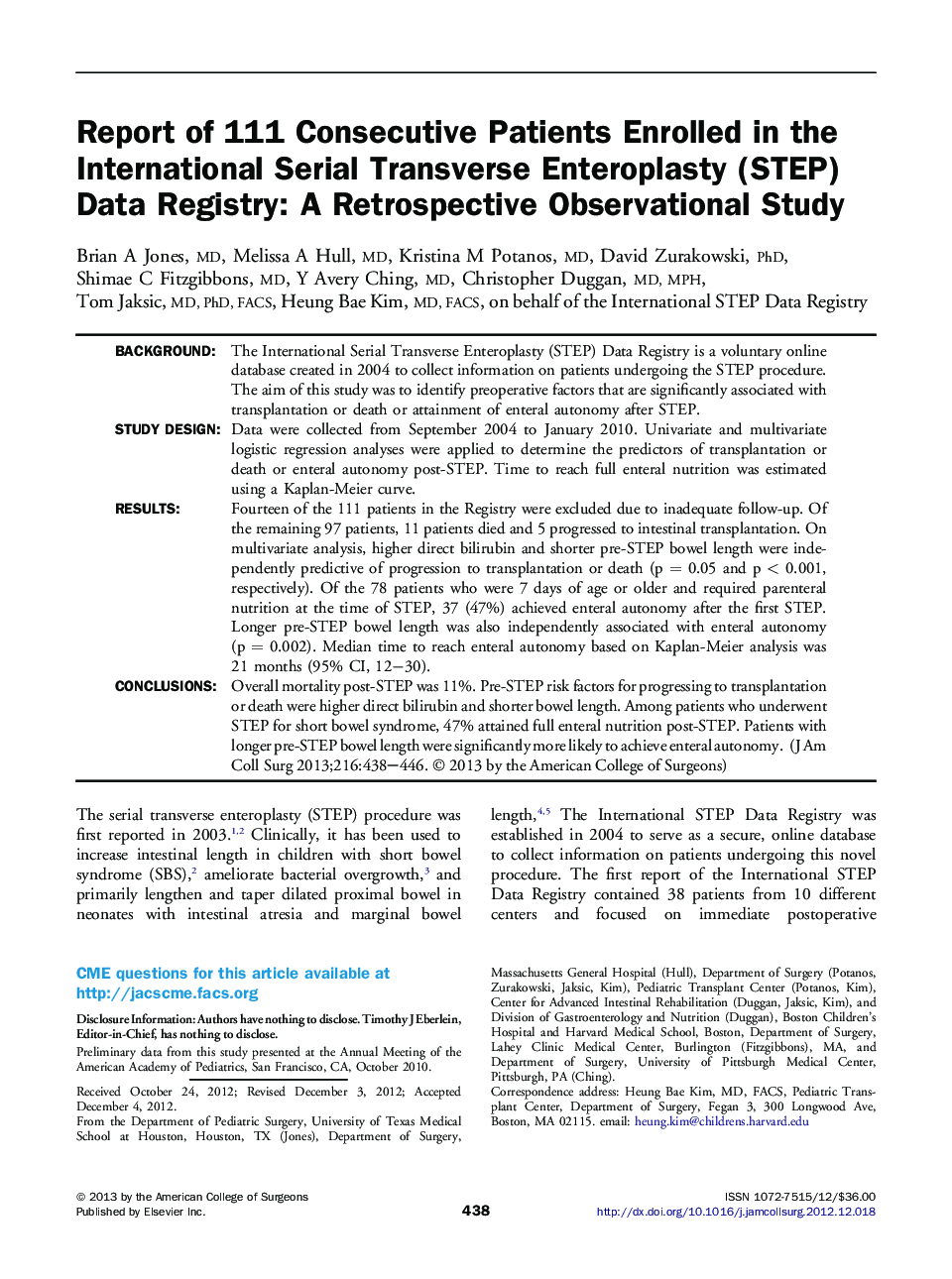| کد مقاله | کد نشریه | سال انتشار | مقاله انگلیسی | نسخه تمام متن |
|---|---|---|---|---|
| 4293288 | 1612249 | 2013 | 9 صفحه PDF | دانلود رایگان |

BackgroundThe International Serial Transverse Enteroplasty (STEP) Data Registry is a voluntary online database created in 2004 to collect information on patients undergoing the STEP procedure. The aim of this study was to identify preoperative factors that are significantly associated with transplantation or death or attainment of enteral autonomy after STEP.Study DesignData were collected from September 2004 to January 2010. Univariate and multivariate logistic regression analyses were applied to determine the predictors of transplantation or death or enteral autonomy post-STEP. Time to reach full enteral nutrition was estimated using a Kaplan-Meier curve.ResultsFourteen of the 111 patients in the Registry were excluded due to inadequate follow-up. Of the remaining 97 patients, 11 patients died and 5 progressed to intestinal transplantation. On multivariate analysis, higher direct bilirubin and shorter pre-STEP bowel length were independently predictive of progression to transplantation or death (p = 0.05 and p < 0.001, respectively). Of the 78 patients who were 7 days of age or older and required parenteral nutrition at the time of STEP, 37 (47%) achieved enteral autonomy after the first STEP. Longer pre-STEP bowel length was also independently associated with enteral autonomy (p = 0.002). Median time to reach enteral autonomy based on Kaplan-Meier analysis was 21 months (95% CI, 12−30).ConclusionsOverall mortality post-STEP was 11%. Pre-STEP risk factors for progressing to transplantation or death were higher direct bilirubin and shorter bowel length. Among patients who underwent STEP for short bowel syndrome, 47% attained full enteral nutrition post-STEP. Patients with longer pre-STEP bowel length were significantly more likely to achieve enteral autonomy.
Journal: Journal of the American College of Surgeons - Volume 216, Issue 3, March 2013, Pages 438–446